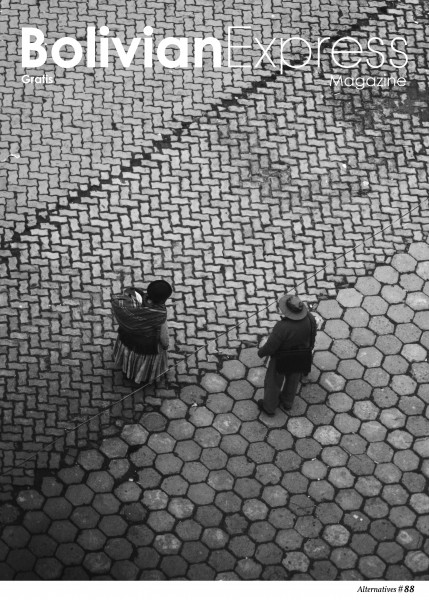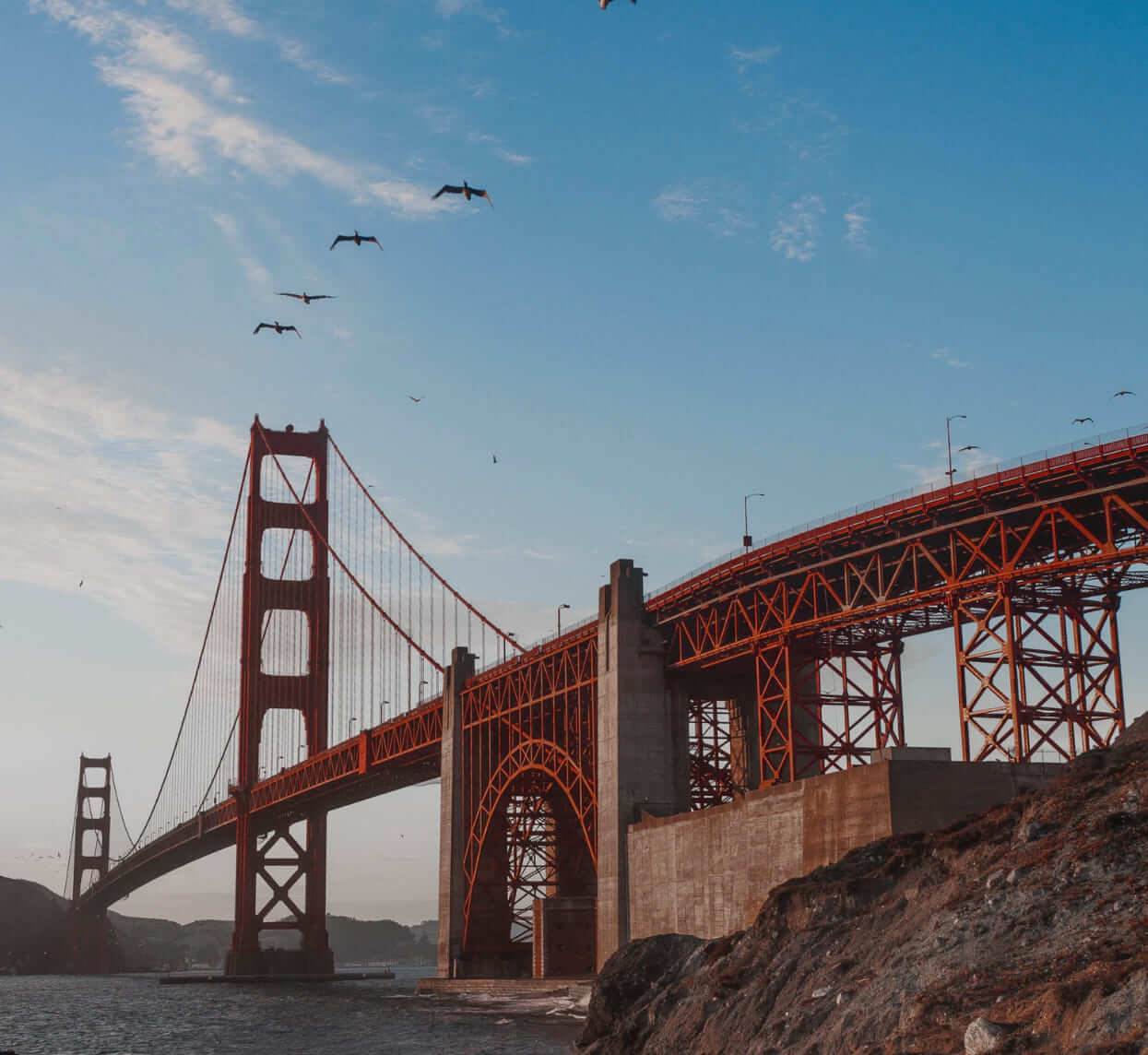
Our Cover: Alejandro Loayza Grisi
‘We are building a real, concrete and successful alternative to capitalism,’ President Evo Morales said in a speech to the UN General Assembly earlier this year. Bolivia’s economic growth in the last ten years and the regime’s stability in an unstable regional context are proof that there is some truth to President Morales’s words. Back in 2009, the new Constitution was the first to mention the rights of Pachamama and to promote Suma Qamaña, principles which still represent today a legitimate alternative to capitalism.
But saying that Bolivia is not a capitalist country feels a bit naive. Mercantilism is king here. Because of the lack of industry – something that many countries that have been exploited for their primary resources have in common – Bolivia became a nation of merchants, importing (and smuggling) most of its manufactured goods from abroad. For the last 500 years and until the election of Morales, Bolivia has been defined by the rule of free markets imposed by foreign powers; it would and should take longer than a decade to move past these structures. Which is why the world has its eyes on Bolivia, one of the last socialist countries standing, and one of the few with an indigenous cosmovisión mentioned in its Constitution.
Bolivia is a country of alternatives. Partly because of the central notion of Suma Qamaña, a strong focus has been placed on finding alternative sources of energy, eating better, reducing waste through recycling and learning to live more consciously. Foreign practices like yoga, reiki and meditation are finding a growing base of supporters around the country. And in some other ways, Bolivians are finding themselves again by embracing their own craftsmanship and making their own products instead of the made-in-China imported goods that flood the country – the same goods that trusting tourists bring back home as souvenirs.
In previous issues of Bolivian Express, we’ve written about a different range of Bolivian products that are being rediscovered. Bolivians are now drinking their own locally grown coffee instead of imported freeze-dried coffee. The same is happening with a variety of other merchandise: cacao, fruits and vegetables, alpaca and llama wools, and many more. Finally, Bolivia is starting to export goods and showing to the world what it is capable of producing.
Undoubtedly, the country is changing. This may be motivated by necessity or ideology, but one can’t ignore the upcoming 2019 presidential elections that are increasingly dividing the country. And when talking about alternatives, one cannot ignore the elephant in the room: the alternatives to Evo. One year from now, a president will be elected or re-elected. Primaries are scheduled for 27 January 2019, and as of today, the lack of potential alternatives is the biggest threat to the country and its unity. For Bolivia to stay as the beacon of hope against capitalism, and to remain a credible alternative, it is essential that the next elections accurately respect the state of democracy in Bolivia.
Photo: Adriana L. Murillo
Bolivia’s wild cocoa is of the finest quality and flavour
Bolivian chocolate producer Mó Acá In, is reclaiming the country’s world-class cocoa for Bolivia. ‘It is a first-category cocoa that has won prizes in the Salon du Chocolat in Paris,’ says Veronica Hevia y Vaca, co-founder of Mó Acá In.
These cocoa plants are truly a gift from nature. Growing wildly along river banks in remote areas of the Amazon rainforest, they have experienced almost no human intervention. ‘It is wild cocoa and that is what gives it its richness, flavour and delicacy,’ José Guillermo Campos says, who is the other half of the husband-and-wife team who founded Mó Acá In.
European brands have long known about the top-tier quality of Bolivia’s wild cocoa plants. ‘These [European] companies come and take all of it to make [chocolate for] Swiss and Belgium chocolate companies,’ Hevia y Vaca says. ‘This is exactly what the work of Mó Acá In is changing. ‘Bolivians have the right to taste and appreciate their great chocolate…[so] this chocolate [and cocoa] has to stay here,’ she adds.
Growing wildly along river banks in remote areas of the Amazon rainforest, these cocoa plants have experienced almost no human intervention.
Reaching the areas of the Amazon where this cocoa grows, however, is not for the faint-hearted. ‘It is an interesting journey, but it is also a hard journey,’ Hevia y Vaca says, which is why Mó Acá In is collaborating with Helvetas, a Swiss NGO that provides technology and education to Bolivian cocoa farmers. The two are working together to create stronger relationships with the families of the region, ensuring greater sustainability for all of the parties involved.
‘I was really interested in supporting the wild cocoa as well as supporting the families and creating a connection with them. This way they wouldn’t fail in having cocoa for us and we wouldn’t fail in buying it from them,’ Hevia y Vaca says. ‘We need each other.’
Mó Acá In has sponsored schools and football fields in the area to support local communities and show the company’s gratitude for the region’s fine quality product. Their name means ‘House of the Amazon’ in Chimane, the language of the Tsimane people, one of the indigenous groups that resides in the cocoa-producing region. ‘To honour them for the grand quality of their chocolate,’ Campos says, ‘we named ourselves – Mó Acá In – in their language.’
Campos, worked for many years in Italy as the chief chemist of the chocolate company Ferrero, but it was always his dream to do something in Bolivia with Bolivian products. The delights on offer at Mó Acá In are a celebration of the exquisite flavours that can be found in Bolivia: chocolates with maracuya from the Amazon rainforest, coffee from the Yungas and even salt from the salt flats of Uyuni.
‘We work with everything that is Bolivian… [and] we’re very proud of showing how everything can be done in the country,’ says Hevia y Vaca.
‘We work with everything in Bolivia… and we’re very proud of showing how everything can be done in the country.’
—Verónica Hevia y Vaca, Co-founder of Mó Acá In
Mó Acá In has big plans for the future, including exporting their products to Europe and combining cocoa production with bird-watching tours, to create a kind-of ‘chocolate route’ for tourists through the Bolivian jungle.
Much can be said about Mó Acá In, but really their chocolates scrumptiously speak for themselves. To take part in the flavourful experience, make your way to Calle 15 in Calacoto and visit their shop inside the entrance of the Ketal supermarket.

 Download
Download





















